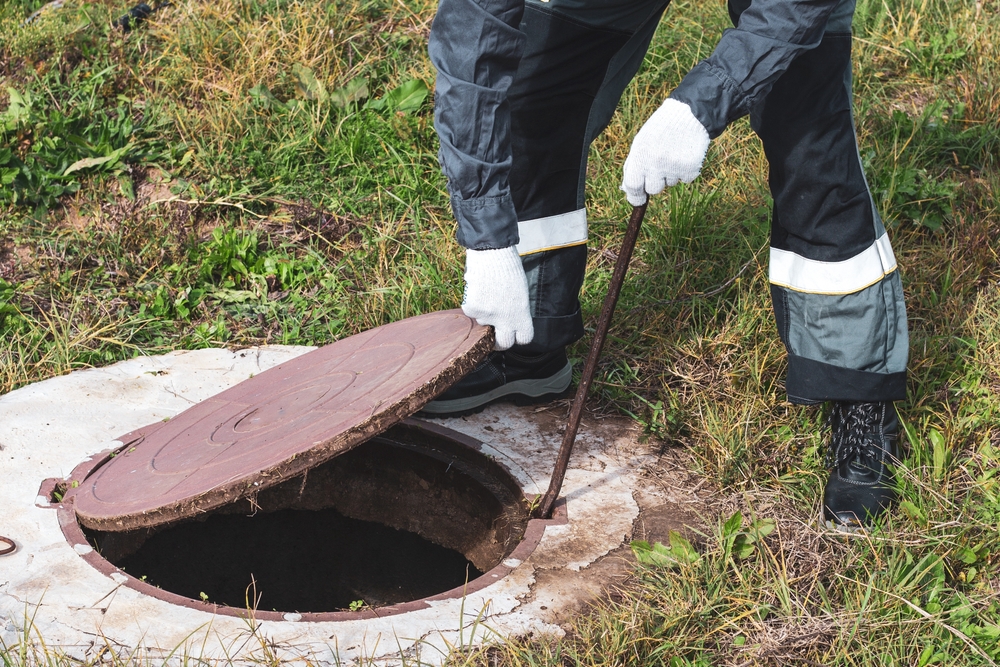

Summer brings sunshine, vacations, and outdoor activities, but it also brings challenges for septic systems. With increased water usage from gardening, pool filling, and guests visiting, your septic system can be under strain. Proper maintenance during the summer months is crucial to ensure it continues to function efficiently and avoids costly repairs. Here are some tips to help you keep your septic system in top shape throughout the summer.
Understanding Your Septic System
Before diving into maintenance tips, it’s essential to understand how your septic system works. Typically, it consists of a tank buried underground where waste from your home collects and separates into layers. Solid waste settles at the bottom as sludge, while oils and grease float to the top as scum. The liquid effluent flows into a drain field where it is naturally filtered by the soil.
Tips for Maintaining Septic Systems During Summer
1. Watch Your Water Usage
One of the primary concerns during summer is excessive water usage. Activities like watering the lawn, filling up swimming pools, or hosting guests can significantly increase water flow into your septic system. To prevent overload, spread out water-intensive tasks over time rather than doing them all at once.
2. Be Mindful of What Goes Down the Drain
Summer often means more outdoor cooking and entertaining, which can lead to more fats, oils, and food scraps going down the drain. Avoid pouring cooking oils and grease down sinks as they can solidify and clog pipes or the septic tank. Use drain strainers to catch food particles and empty them into the trash.
3. Inspect Your Septic System Regularly
Regular inspections by a professional can catch small issues before they become significant problems. Summer is an ideal time for inspections when the ground is dry and accessible. Look for signs of leaks, odors, or lush patches of grass over the drain field, which may indicate a problem.
4. Be Cautious with Chemicals
Avoid using excessive amounts of household chemicals, such as bleach, antibacterial soaps, or harsh cleaners. These can disrupt the natural balance of bacteria in your septic tank that break down waste. Opt for septic-safe products and use them sparingly.
5. Protect Your Drain Field
The drain field is crucial for the final filtration of effluent before it returns to the groundwater. Avoid parking vehicles or heavy equipment over the drain field, as this can compact the soil and damage pipes. Plant trees and shrubs away from the drain field to prevent roots from invading and causing blockages.
6. Pump Your Septic Tank as Needed
Depending on the size of your household and usage, septic tanks typically require pumping every 3 to 5 years. Summer is a good time to schedule pumping if it’s due soon or if you notice any signs of sluggishness in your system. A professional can assess the tank’s condition and recommend a pumping schedule.
7. Monitor Water Quality
If you have a well that relies on groundwater near your septic system, monitor water quality regularly. Contamination from a malfunctioning septic system can affect drinking water quality and pose health risks. Test your well water at least once a year for bacteria and other contaminants.
8. Educate Your Household
Ensure everyone in your household understands the importance of septic system care. Teach them about what can and cannot be flushed or poured down drains to prevent clogs and system overload. Simple habits like using water-efficient fixtures and spreading out laundry loads can make a big difference.
Conclusion
Proper maintenance of your septic system during summer not only ensures its longevity but also prevents costly repairs and environmental damage. By being mindful of water usage, monitoring what goes down the drain, scheduling regular inspections, and adopting septic-safe practices, you can enjoy a trouble-free summer with a well-functioning septic system. Remember, a little care now can save you from headaches later.
Whether you’re hosting summer parties or enjoying quiet family time, these tips will help keep your septic system running smoothly so you can focus on making the most of the season.
Need Septic Contractors in Bethel, OH?
Gullett Sanitation Services, Inc. offers mobile de-watering of sludge and slurries in and around Bethel, OH, utilizing Roediger belt filter presses, as well as services and repairs on all major brands of home aeration systems. We also work with jet aeration and cleaning for sewer system lines (up to 8 inches in diameter), permits and consultation for biosolids, the transportation of non-hazardous wastewater, sludge removal from all types of waste lagoons, service and repairs on residential sewer systems, and the removal of grit, rags, and debris from anaerobic or aerobic digesters. Give us a call today and let us be your septic and dewatering service in Ohio!
